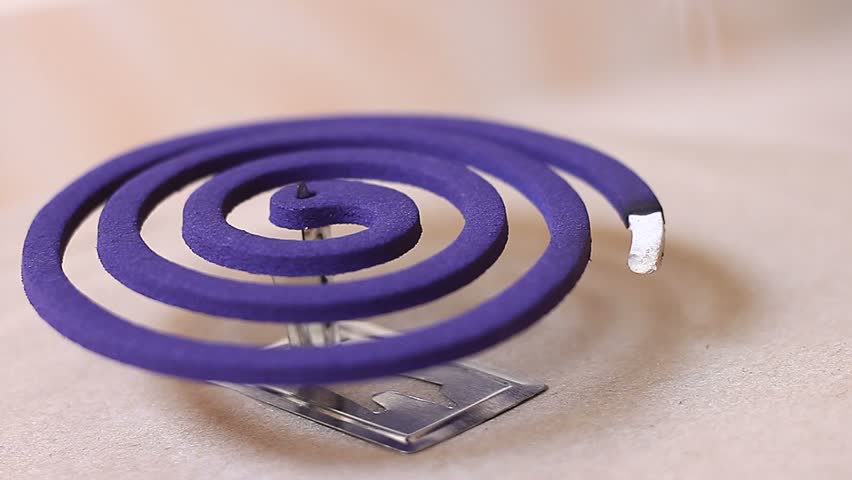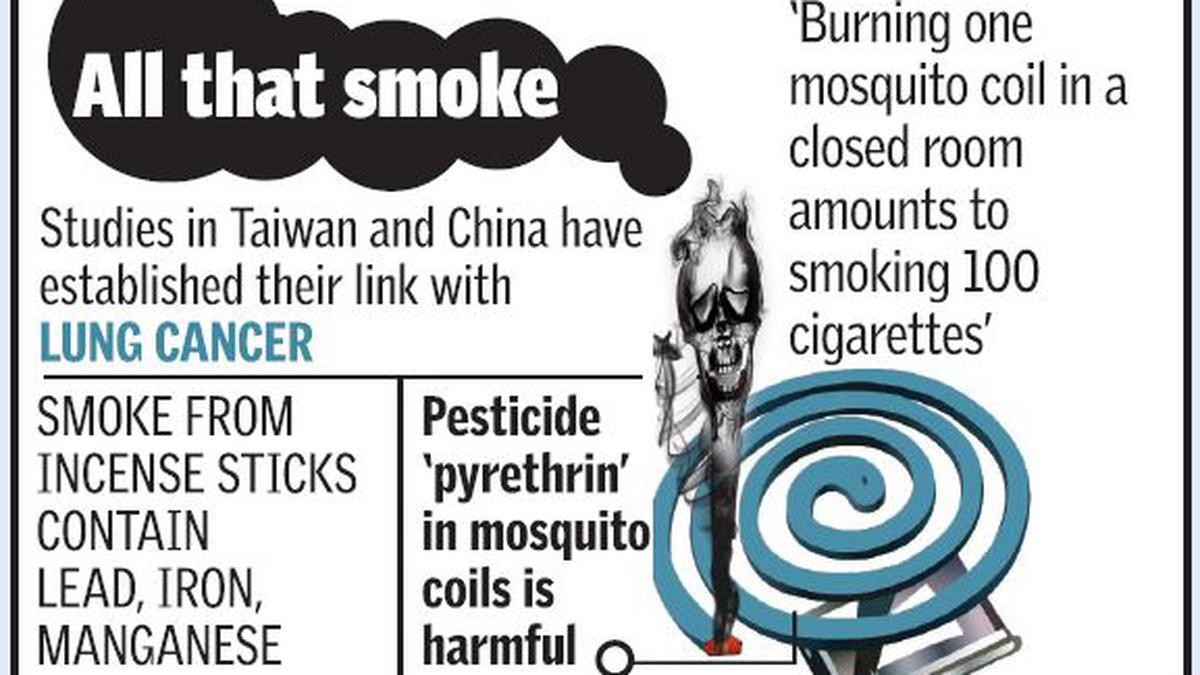Inhaling mosquito coil smoke is not safe due to potential respiratory issues and other health risks. Burning mosquito coils indoors can lead to breathing difficulties, eye irritation, asthma aggravation, and even nausea.
Prolonged exposure may result in serious health complications. It’s important to be cautious and use mosquito coils only in well-ventilated areas to minimize health hazards. Additionally, seeking safer alternatives for mosquito control can help protect your respiratory health and overall well-being.
Remember, your health comes first, so make informed choices when using mosquito coils to avoid potential harm.

Credit: www.sydney.edu.au
Introduction To Mosquito Coils
History And Common Use
Mosquito coils have been a popular method to repel mosquitoes for decades.
They are commonly used in tropical regions and outdoor settings to deter mosquitoes.
Main Ingredients
Mosquito coils typically contain pyrethroids such as allethrin or metofluthrin.
Other ingredients may include carbon powder, wood powder, and chemical binders.
Health Impacts Of Mosquito Coils
Mosquito coils are a popular method of repelling mosquitoes, but their use raises concerns about the potential health impacts. The smoke emitted by mosquito coils contains various chemicals that can have immediate and long-term effects on human health.
Immediate Symptoms Of Exposure
Exposure to mosquito coil smoke can lead to immediate symptoms such as breathing difficulties, disturbed sleep, burning of the eyes, redness and irritation, asthma triggers, and nausea and vomiting.
Long-term Health Risks
Long-term exposure to mosquito coil smoke can pose serious health risks, including headaches, dizziness, respiratory system damage (cough, chest tightness, difficulty in breathing, sore throat), and nervous system damage leading to permanent brain damage.
Comparative Analysis
Inhaling mosquito coil smoke may lead to breathing difficulties, eye irritation, and asthma exacerbation. Prolonged exposure can cause headaches, dizziness, and pose a risk of permanent nervous system damage. It’s important to use mosquito coils outdoors and under adult supervision to mitigate these health risks.
Mosquito Coils Vs. Cigarettes
When it comes to comparing the safety of inhaling mosquito coils and cigarettes, it is important to note that both can pose health risks. While cigarettes are known to contain harmful chemicals such as nicotine and tar, mosquito coils also release smoke that may be harmful when inhaled directly.
Key Points:
- Mosquito coils and cigarettes both release smoke that can irritate the respiratory system.
- Cigarettes contain additional harmful chemicals, such as nicotine and tar, which can lead to long-term health issues.
- Direct inhalation of mosquito coil smoke may cause respiratory irritation and discomfort.
Mosquito Coils Vs. Other Repellents
In comparison to other mosquito repellents, such as sprays or lotions, mosquito coils have a different mode of action. While repellent sprays and lotions create a barrier on the skin to deter mosquitoes, mosquito coils release smoke that acts as a deterrent.
Key Points:
- Mosquito coils work by burning a coil or spiral that releases a smoke containing insecticidal properties.
- Repellent sprays and lotions create a physical barrier on the skin to keep mosquitoes away.
- Both mosquito coils and repellents can effectively repel mosquitoes when used correctly.
In conclusion, while inhaling mosquito coil smoke may cause respiratory irritation, it is important to use mosquito coils as directed and in well-ventilated areas. It is advisable to consider alternative mosquito repellents, such as sprays or lotions, if you have concerns about inhaling smoke. Always prioritize your safety and follow the instructions provided by the manufacturer.
Chemical Composition And Toxicity
Inhaling mosquito coils can be harmful due to the toxic chemicals they contain, such as prallethrin. Prolonged exposure can cause respiratory irritation, headaches, dizziness, and even permanent brain and nervous system damage. It is recommended to use mosquito coils outdoors only and under adult supervision to minimize the risks.
Mosquito coils are commonly used as a method to repel mosquitoes and prevent mosquito-borne diseases. However, there has been concern about the safety of inhaling the smoke emitted from these coils. Understanding the chemical composition and potential toxicity of mosquito coils is crucial in assessing the risks associated with their use.
Active Ingredients
Mosquito coils typically contain a combination of active ingredients that work together to repel mosquitoes. The most commonly used active ingredients in mosquito coils include pyrethroids, such as allethrin, d-allethrin, and prallethrin. These chemicals are synthetic versions of natural insecticides found in chrysanthemum flowers. Pyrethroids are effective in killing and repelling mosquitoes, which makes them a popular choice in mosquito control products.
Other active ingredients that may be found in mosquito coils include metofluthrin and esbiothrin. These chemicals have similar insecticidal properties and are commonly used in combination with pyrethroids to enhance the effectiveness of the mosquito coil.
Toxicity Levels And Concerns
While mosquito coils are generally considered safe for use, there are concerns regarding their potential toxicity, especially when inhaled. The smoke emitted from burning mosquito coils contains various compounds, including particulate matter, volatile organic compounds (VOCs), and carbon monoxide.
The particulate matter in the smoke can irritate the respiratory system and may cause symptoms such as coughing, wheezing, and shortness of breath. Prolonged exposure to these particles can also contribute to the development of respiratory conditions, particularly in individuals with pre-existing respiratory issues such as asthma or chronic obstructive pulmonary disease (COPD).
VOCs released from burning mosquito coils can also pose health risks. These compounds, such as formaldehyde and benzene, are known to be respiratory irritants and can have long-term health effects when regularly inhaled at high concentrations.
Carbon monoxide, a colorless and odorless gas, is another byproduct of burning mosquito coils. Inhaling high levels of carbon monoxide can lead to symptoms such as dizziness, headaches, and in severe cases, unconsciousness or even death. It is important to ensure proper ventilation when using mosquito coils to minimize the risk of carbon monoxide poisoning.
To reduce the potential health risks associated with inhaling mosquito coil smoke, it is recommended to use them in well-ventilated areas and avoid direct inhalation of the smoke. It is also advisable to limit the use of mosquito coils to outdoor spaces and to follow the instructions provided by the manufacturer.
In conclusion, while mosquito coils can effectively repel mosquitoes, it is important to be aware of their potential toxicity when inhaled. Understanding the chemical composition and taking necessary precautions can help minimize the risks associated with their use.
Safety Guidelines For Using Mosquito Coils
Inhaling mosquito coil smoke can lead to breathing difficulties, eye irritation, and asthma triggers. To stay safe, use coils outdoors, away from children, and avoid inhaling the smoke directly. Follow safety guidelines to prevent health issues associated with mosquito coil fumes.
Proper Ventilation
Ensure to use mosquito coils outdoors with adequate ventilation to minimize inhalation of smoke.
Safe Practices And Supervision
Always supervise the use of mosquito coils, especially around children and pets, to prevent accidents.
Credit: www.thehindu.com
Alternatives To Mosquito Coils
Looking for safe alternatives to mosquito coils? Inhaling mosquito coil smoke can lead to breathing difficulties, eye irritation, asthma triggers, and even nausea. Explore other options to keep those pesky mosquitoes away without compromising your health.
Natural Repellents
If you are concerned about the safety of mosquito coils, there are several natural alternatives that you can try. Some of the most effective natural repellents include essential oils such as citronella, lemon eucalyptus, and lavender. You can use these oils in a diffuser or mix them with a carrier oil to apply to your skin. Other natural repellents include garlic, neem oil, and catnip. These options are safe for both adults and children and do not emit harmful fumes.Electronic Repellents
Another alternative to mosquito coils is electronic repellents. These devices work by emitting sound waves or using light to repel mosquitoes. Some electronic devices also use heat or chemicals to kill mosquitoes. While these devices can be effective, they may not be suitable for people with sensitive hearing or those who are easily disturbed by flashing lights. It is also important to note that electronic repellents may not be effective in large outdoor spaces.In conclusion, while mosquito coils may be effective in repelling mosquitoes, they can also pose health risks, especially if used indoors or in enclosed spaces. Fortunately, there are several natural and electronic alternatives that you can try to keep mosquitoes at bay. Whether you choose to use essential oils, electronic devices, or other natural repellents, it is important to prioritize your health and safety.Regulatory Standards And Recommendations
Mosquito coils are commonly used as a method of repelling mosquitoes, especially in outdoor settings. However, concerns have been raised about the safety of inhaling the smoke emitted by these coils. In light of these concerns, it is essential to understand the regulatory standards and recommendations governing the use of mosquito coils.
National And International Guidelines
Various national and international regulatory bodies have established guidelines to address the safety and use of mosquito coils. These guidelines aim to ensure that the products are manufactured, marketed, and used in a manner that minimizes potential health risks to individuals. For instance, the World Health Organization (WHO) and the Environmental Protection Agency (EPA) have set specific standards regarding the chemical composition and emission levels of mosquito coils to protect public health.
Recommendations For Safer Use
Given the potential health hazards associated with inhaling mosquito coil smoke, it is crucial for individuals to adhere to certain recommendations for safer use. These recommendations are designed to mitigate the risks and promote responsible usage of mosquito coils. Some of the key recommendations include:
- Outdoor Use: Mosquito coils should be primarily used in outdoor settings to minimize indoor exposure to the smoke.
- Proper Ventilation: When using mosquito coils indoors, ensure adequate ventilation to reduce the concentration of smoke in enclosed spaces.
- Adult Supervision: It is important for adults to supervise the use of mosquito coils, especially in the presence of children, to prevent accidental ingestion or inhalation.
- Safe Storage: Store mosquito coils in a secure location away from the reach of children and pets to prevent unintended contact or ingestion.
By adhering to these recommendations and being mindful of the regulatory standards, individuals can minimize the potential health risks associated with inhaling mosquito coil smoke while still benefiting from their mosquito-repelling properties.

Credit: m.youtube.com
Frequently Asked Questions
Can You Sleep In A Room With A Mosquito Coil?
Sleeping in a room with a mosquito coil is not recommended. The smoke from burning mosquito coils can cause breathing difficulties, eye irritation, asthma triggers, and nausea. It is best to use alternative methods to protect against mosquitoes and ensure a safe sleeping environment.
Is It Okay To Smell Mosquito Coil?
Inhaling mosquito coil smoke can cause breathing difficulties, eye irritation, asthma symptoms, nausea, and more. It’s not safe.
What Are The Symptoms Of Mosquito Coil Poisoning?
Symptoms of mosquito coil poisoning include headache, dizziness, coma, convulsions, blurred vision, coughing, chest tightness, and difficulty breathing.
Conclusion
Inhaling mosquito coil smoke can have detrimental effects on your health. It can lead to breathing difficulties, eye irritation, asthma triggers, nausea, vomiting, and even nervous system damage. Thus, it is not safe to inhale mosquito coil smoke, especially in closed spaces.
It is important to take precautions and use mosquito repellents and alternatives that do not emit harmful smoke. Protect yourself and your loved ones by being aware of the risks associated with mosquito coils.
Related posts:

I’m MD Tanvir, and I bring years of expertise gained from working closely with pest control companies to the forefront. My journey in the industry has inspired me to launch Bug Battler, a platform aimed at equipping people with the know-how to combat pests autonomously. Through Bug Battler, I aim to empower individuals with practical insights to tackle pest infestations effectively.

